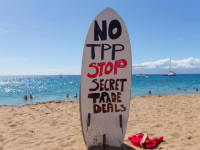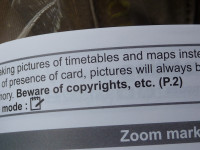The Government of Quebec has introduced new legislation that requires Internet service providers to block access to unlicensed online gambling sites. The provisions are contained in an omnibus bill implementing elements of the government’s spring budget, which included a promise to establish website blocking requirements. The bill provides that “an Internet service provider may not give access to an online gambling site whose operation is not authorized under Québec law.” The government’s lottery commission will establish the list of banned websites:
“The Société des loteries du Québec shall oversee the accessibility of online gambling. It shall draw up a list of unauthorized online gambling sites and provide the list to the Régie des alcools, des courses et des jeux, which shall send it to Internet service providers by registered mail.“
According to the law:
“An Internet service provider that receives the list of unauthorized online gambling sites in accordance with section 260.35 shall, within 30 days after receiving the list, block access to those sites.“











